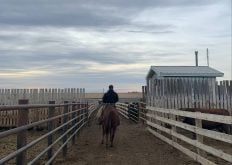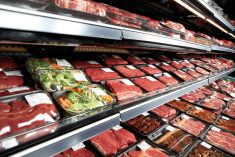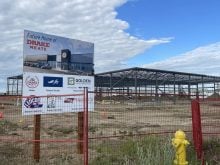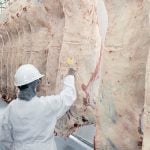One might say the new president of Atlantic Beef Products (ABP) in Borden, Prince Edward Island is a miracle worker.
Within one week of taking his position, the provincial government wrote off $14 million, putting the plant in the black for the first time since it opened in 2003. But John Thompson, the new president, who comes to the position from what he terms an eclectic work history, said the writeoff was in the works. “We’ve changed the structure of the company from a plant operation to a corporate structure,” said Thompson, and added that aside from his new position, the plant now has an operations manager, a chief financial officer, and a director of marketing and communication. Some restructuring had been going on in the background leading up to his being hired, and he said “We’ve created a new environment where this business will be a profitable organization, a profitable company.”
Read Also
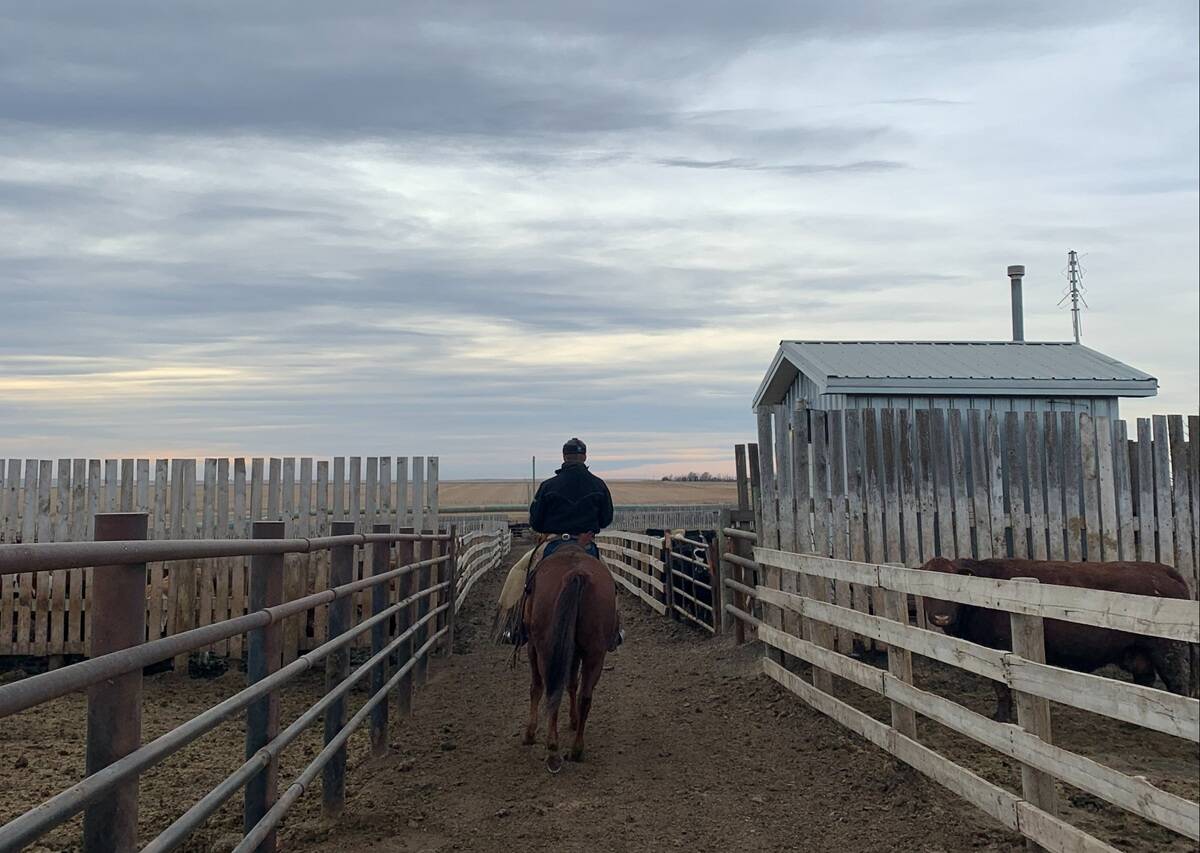
Pen riders still better than tech at detecting respiratory disease in feedlot cattle, says researcher
Recent research found that pen riders are better than tech at flagging signs of BRD in feedlot cattle
Believing that there had been a lot of Band-aid solutions over the past five years, Thompson said some tough decisions had to be made. The former general manager is no longer with ABP. Thompson says people were let go throughout the facility. “We experienced losses at all levels,” he said.
ABP actually had two general managers in place and both have gone back to their respective jobs; one being a producer and one working with the province. Thompson said writing off $14 million is a help, but noted there is still more work to be done before ABP becomes profitable. “But we can now see the light at the end of the tunnel,” he said.
Thompson said he believes the provincial government did the right thing in “stepping up to the plate.”
“The government, especially the government of PEI, has been extremely generous much before my time at this facility,” he said.
Richard Brown, minister of innovation, at the time of the writeoff, said the new managers will be running the plant as a private sector business and that the province will not interfere with its operations.
With the bailout, Thompson says government is sending a very clear message that cattle and beef production in PEI is very important, not only to the farmers of the Island, but to the Maritimes.
But he realizes this is not a bottomless pit.
Gordon Lank, a beef producer in Hampshire, PEI, has seen the worst of times for the beef industry in PEI and across Canada over the past five years. Even with government subsidies throughout the first five years of operation, ABP and its shareholders, the producers, were losing money. “We had the BSE crises and really never came back from that. And we are now into this country-of-origin labelling in the U. S.,” said Lank.
While some Island producers were still shipping into the U. S. at the time of the interview, the new restructuring at ABP could put a stop to that.
Lank says there is a shortage of red meat in the Maritimes, hence there is a market for all red meat from ABP within the area. “Having said that, it is a federally inspected plant and can ship to other countries. There are pieces of the animal that sell better in other places. It can be advantages to ship certain parts of the animal to the U. S.,” said Lank.
With 700 head of cattle in his operation at any given time, Lank said he ships about 600 a year, but as far as getting cost of production, he said “The red meat market is in trouble in Canada and now in North America. The price is not high enough to cover costs.”
It’s this phenomenon that has plagued ABP from the beginning and something Thompson wants to stop. He explained it is a commodity-based business and the producers are going to find that the chain of new people will be looking to find new markets with the assurance that the producers get a fair price.
Thompson pointed out that the benchmark price has always been based on the price of beef in Ontario. But when producers try to get their product into Ontario, it is often downgraded. “There is a whole bunch of things that happen to cattle when they are transported. So, we are providing them (the producers) with a good alternative by processing their beef here.”
Can they do it for the same price they are paying in Ontario? “No we can’t. That is unrealistic. There is a premium to be paid for doing business here, but at the same time we are not going to operate this plant on the backs of the producers.”
Thompson says under the revised operational plan they will find a balance between what they are getting in the marketplace and how they introduce Island beef into the marketplace in terms of new product.
“We plan to do fresh portioning during the peak sum-


